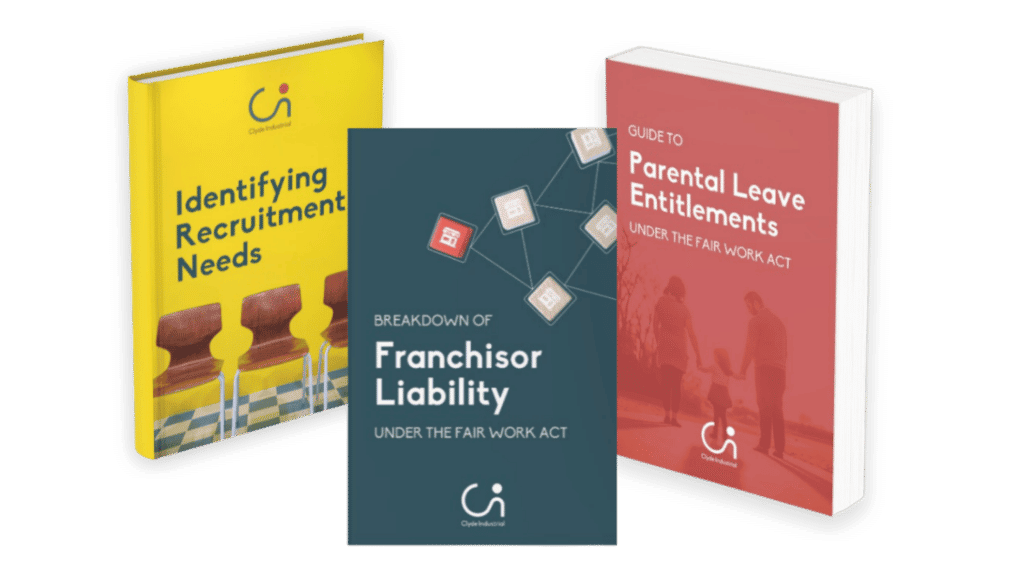Coding
Are Dismissal and Redundancies issues giving you a headache?
As an employer, it is important that you understand the intricacies and nuances involved in the dismissal of employees. Dismissals are an unfortunate eventuality that arises throughout the course of running an employing business, however they can be heavily scrutinised with employees often having an avenue of appeal if they feel the dismissal was either unlawful, or simply harsh, unjust or unreasonable.
As an employer, it is important that you understand the intricacies and nuances involved in the dismissal of employees. Dismissals are an unfortunate eventuality that arises throughout the course of running an employing business, however they can be heavily scrutinised with employees often having an avenue of appeal if they feel the dismissal was either unlawful, or simply harsh, unjust or unreasonable.
UNFAIR DISMISSALS ADVICE
Unfair Dismissals Advice
Dismissal is defined at s386 of the Fair Work Act 2009 (Cth) (FW Act) as:
- The person’s employment with his or her employment has been terminated on the employer’s initiative; or
- The person has resigned from his or her employment, but was forced to do so because of conduct, or a course of conduct, engaged in by his or her employer.
The act offers some exclusions to the above definition, particularly in relation to employment that was for a specified time with a specified end date.
The FW Act defines unfair dismissal at s385 as follows:
A person has been unfairly dismissed if the FWC is satisfied that:
- the person has been dismissed; and
- the dismissal was harsh, unjust or unreasonable; and
- the dismissal was not consistent with the Small Business Fair Dismissal Code; and
- the dismissal was not a case of genuine redundancy.
Where an employee believes that they have been unfairly dismissed, they may seek recourse by lodging an unfair dismissal claim (subject to s382 of the FW Act). Unfair dismissal claims can be exceptionally costly for employers, both financially and emotionally.
GENERAL PROTECTIONS TO CONSIDER WHEN DISMISSING AN EMPLOYEE
General Protections to Consider When Dismissing an Employee
The general protections provisions of the FW Act are designed to protect employees against a range of unlawful actions by their employer and preserve their workplace rights.
One such protection is the protection against adverse action at s340.
Adverse action is, in relation to an action by an employer towards an employee, threatening to, organising, or acting in a way that:
-
- dismisses an employee;
- injures the employee in his or her employment;
- alters the position of the employee to the employee’s prejudice; or
- discriminates between the employee and other employees of the employer.
It is important to note that adverse action is much broader than simply dismissal, nevertheless a dismissed employee is entitled to lodge a general protections (involving dismissal) claim through the Fair Work Commission. Unlike an unfair dismissal claim, a general protections claim alleges that the person was dismissed (or adversely affected) because of a protection under the Act. Examples of this include:
- Because the person had a workplace right;
- Because the person has, or has not, exercised a workplace right;
- Because the person is or is not, or was or was not, an officer or member of an industrial assocation (i.e. a trade union);
- Because the person engaged in or proposed to engage in protected industrial action;
- Because the person had a protected attribute under a state or commonwealth anti-discrimination law.
General protections remedies are often significantly more costly, as there is no cap on potential damages
Dismissals are often an unavoidable part of the employment life cycle. However, dismissing an employee inevitably incurs risks, such as an unfair dismissal or general protections claims. It is integral that businesses are equipped with the tools and knowledge to handle dismissals correctly and in doing so mitigate those risks.
As a starting point, employers should not dismiss any employee without a valid, sound and defensible reasons given the circumstances. The processes that inform or lead to any dismissal should be procedurally fair.
The reason for a dismissal should generally fall into one of the following categories
As a starting point, employers should not dismiss any employee without a valid, sound and defensible reasons given the circumstances. The processes that inform or lead to any dismissal should be procedurally fair.
The reason for a dismissal should generally fall into one of the following categories
-
- Incapacity: this being that the employee no longer has the capacity to perform the inherent requirements of the role;
- Misconduct: the behaviour or conduct of the employee is such, that the employment relationship cannot continue (e.g. serious misconduct);
- Underperformance: the employee’s performance is not satisfactory or they do not possess the requisite skills to perform the role they are in;
- Redundancy: the position that the employee occupies in no longer required to be performed by anyone, or the employer becomes insolvent or bankrupt.
This is an exceptionally complex area, and each dismissal needs to be considered on a case-by-case basis. Clyde Industrial offers professional advice to employers on issues involving dismissal, and representation in unfair dismissal or general protections matters.
We strongly recommend that you seek professional assistance prior to making any decision to dismiss an employee.
We strongly recommend that you seek professional assistance prior to making any decision to dismiss an employee.




